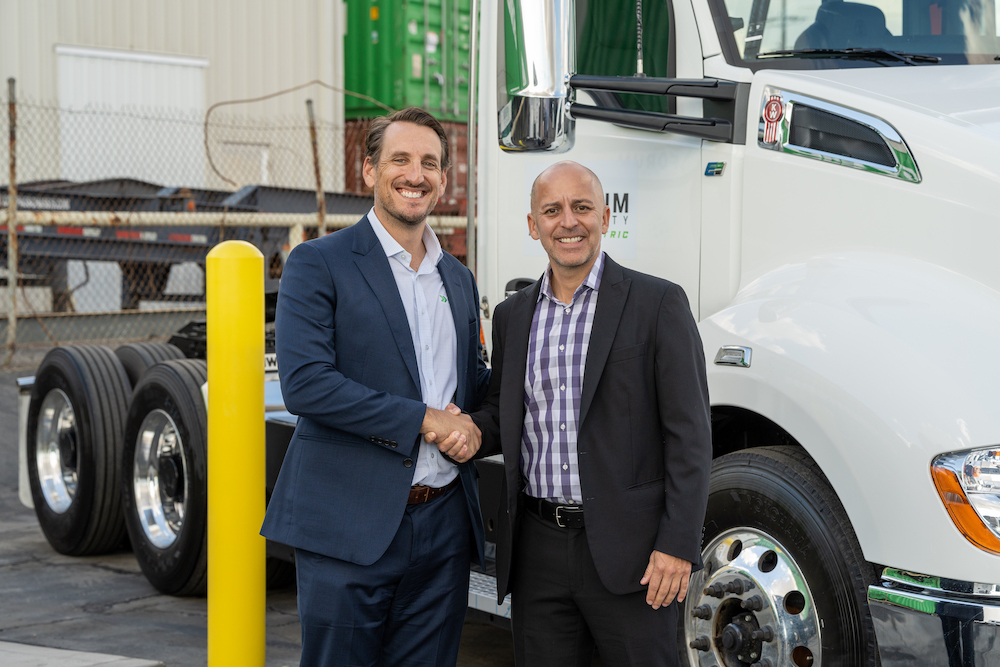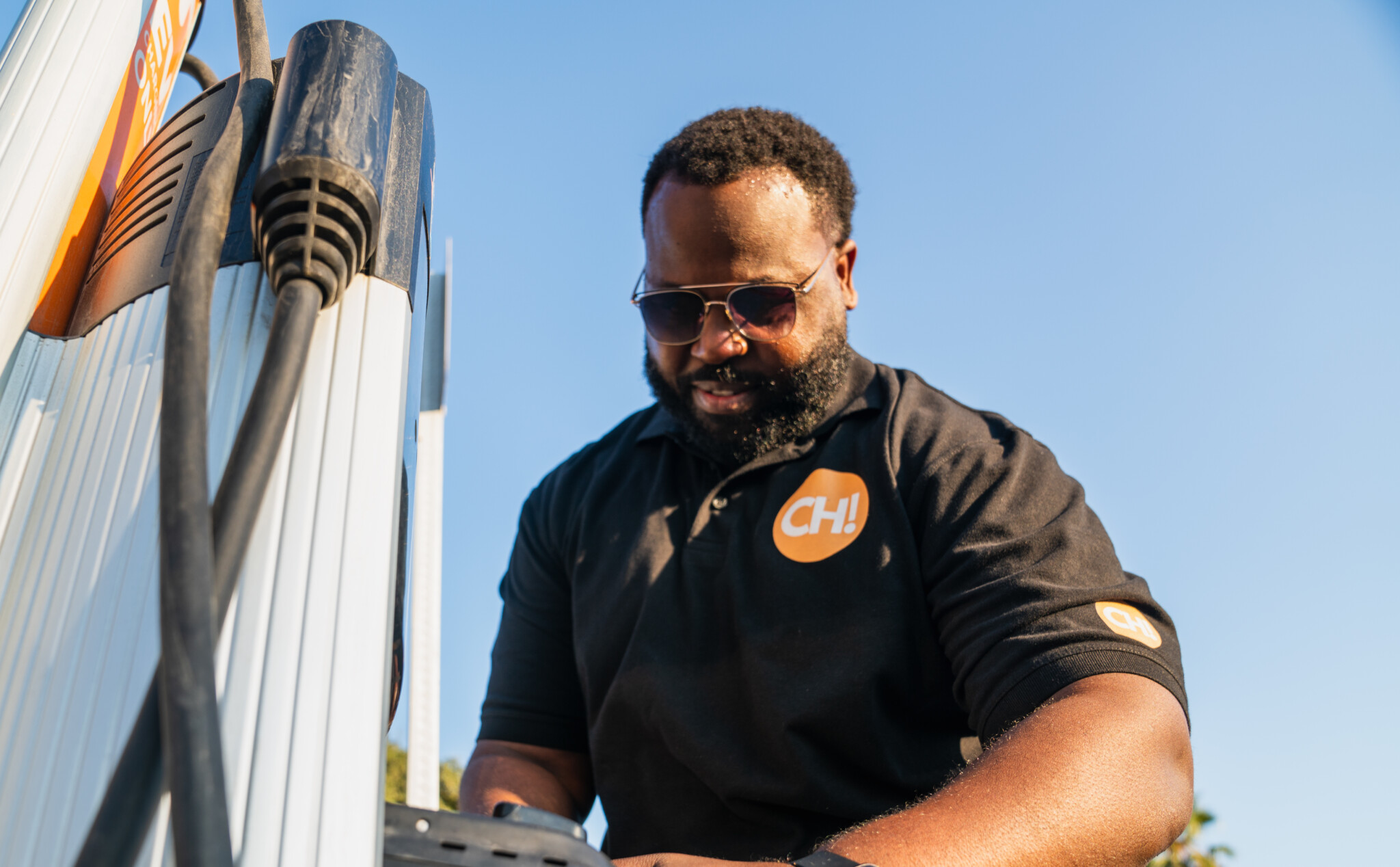
When climate tech companies employ collaborative, community-centered and equitable approaches, their products and deployments achieve deeper climate impact — and make for better business.
Dollaride’s Su Sanni, Banyan Infrastructure’s Amanda Li and Allume Energy’s Cameron Knox spoke at Interactive 2023 about how creating value for both communities and companies is not an oxymoron. Here are some key takeaways.
Collaboration will drive the clean energy transition
Dollaride CEO Su Sanni’s solution is a product of his own upbringing — and it benefits the very community where he grew up. Raised in a transit desert in Brooklyn, Su lived nearly a mile from the nearest subway station. Luckily, two of his uncles were dollar van drivers, part of a decentralized community solution to the neighborhood’s lack of reliable transit.
“Dollar vans provided an opportunity for me to get to school on time, and that became the basis for why I wanted to bring that same solution to more communities around the world,” Su said.
Now, Dollaride’s platform connects those underserved by public transit with dollar van drivers, all while helping these drivers transition to electric vehicles.
Meanwhile, Allume Energy developed SolShare, the first solar splitter allowing families in multi-unit buildings to share a single rooftop solar system. Aiming to broaden the benefits of solar beyond single-family homes and reach more low-income communities, Allume Co-Founder & CEO Cameron Knox said his company sees the best results when working closely with trusted community leaders.
“We passionately believe that working with underserved communities who need the help the most, and the local leaders who understand how to deliver it to them, is going to be a fruitful place to do business, and the only way that we can truly transition to a renewable future,” Cameron said.
For financiers, Banyan Infrastructure’s technology platform replaces manual processes with digital workflows that get communities, developers, owners and lenders together at the same table — and on the same page.
“Financial markets work best when we use the same tools and speak the same language to assess risk versus reward,” Banyan Co-Founder & COO Amanda Li said. “This is from the communities, to the developers, to the owner operators, to the banks, to the pension funds, to the governments, to everyone involved.”
Communities in overlooked markets offer valuable insights
Su said Dollaride revealed core business strategies and product improvements by listening to its customers and incorporating their insights into product decisions. A phone call from an old-guard Dollaride driver inspired the startup to include its early-adopter drivers as ambassadors in its rollout strategy.
“This has been wildly successful,” Su said. “We have the drivers singing our praises, but more importantly, a buzz around what we’re doing in Brooklyn and in Queens — and from the bottom up, as opposed to top down.”
Meanwhile, Amanda said that data speaks volumes. Banyan’s platform compiled and analyzed project and contract information and found that traditionally underfinanced communities look quite similar to markets typically deemed more “creditworthy.” Banyan’s data-driven risk assessment can help financiers put aside their biases, and unlock capital deployments in two critical areas: low- to moderate-income and rural communities.
“Through our platform we can now gather the data to give financiers the information they need to assess whether an investment really is as risky — or whether there is any bias — and allow for proper measurement and comparison to better deploy that capital to those communities that need it most,” Amanda said.
Allume has witnessed firsthand the benefits of focusing its solar deployments on markets that have been historically overlooked by the solar industry, like low-income communities in Mississippi, Florida and Georgia. Cameron said he believes there’s a big opportunity in working “with and for low-income communities.”
“In order for renewable energy adoption to happen at the speed and to the breadth that we need, we have to get outside of our typical and comfortable ‘eco chambers’ or echo chambers, and break this solar bubble,” Cameron said.
That’s why Allume is working to expand the savings generated by rooftop solar beyond wealthy customers. He described one community of 44 families living in public housing who saved as much as 40% on their electricity bills by using SolShare.
“Essentially, as an industry we have been saving people money who already have it, which is not to say it’s a bad thing,” Cameron said. “But it must be to allow those who aren’t to do the same.”
Find more from Elemental Interactive 2023 at our YouTube page.




